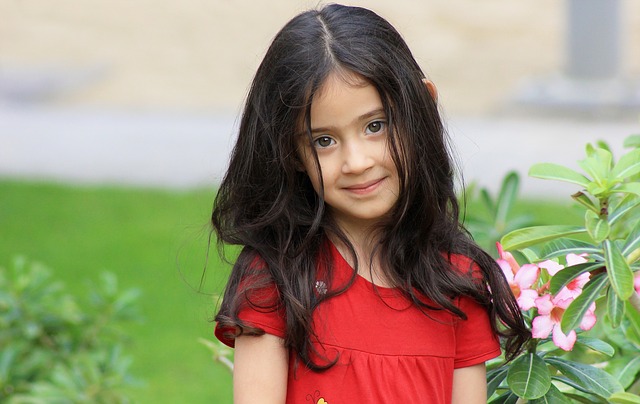
Experienced with giftedness and 2e
Giftedness and 2e
At TheraThrive, we specialize in neurodiversity, which includes giftedness and twice exceptionality. Our business founder, Dr. Grace Malonai, has lived in the world of neurodiverence, twice exceptionality, with giftedness, autism and ADHD her entire life; she has studied these, and has conducted research on gifted parents (Gifted Identity Project).
We understand the quirky natures, the immense talent, and the many challenges associated with giftedness. Let us help you become more at ease with your gifted traits, including high sensitivity, overexcitabilities and 2e issues (twice exceptional), whether you are a gifted adult who needs support and understanding, a parent seeking help, or just curious for more information.
Gifted Drive, Gifted Intensity
Gifted people often have a deep, inner need to make a difference. This need is so deep and so large that it can take over one’s thoughts, shape one’s values, and create a drive that does not quit. Gifted people also tend to feel intensely—so intensely that they can get lost in their feelings, or delve so deep into particular sensations that it is hard to see something else, the larger picture. This intensity can be both wonderful and extremely painful. Likewise, perfectionism is a trait commonly associated with giftedness.
There Is a Difference
Counseling that is specifically designed for neurodivergent people, including gifted, exceptionally bright and twice exceptional children, teens or adults can be a bit different than typical counseling because the foundations beneath the problems are different.
You are not alone.
We Help Families
Parents:
- Did you find out your child is gifted and you need help?
- Is your child struggling in school, even though she or he is very smart?
- Does your child have asynchronous development, where he or she seems much older in some aspects and much younger in others?
- Does your child or teen worry excessively, or is he depressed about matters that seem well beyond his years?
- Is your child extremely sensitive, reactive or intense?
Gifted, But Not Feeling It
Gifted and twice exceptional children, teens and adults often mask, which means they hold back or change how they appear to others in order to better fit in at school or social situations. This might not even a conscious decision, because it can be an adaptive instinct, an unconsciously crafted tool for the purpose of getting along easier in a world where you feel different. Gifted people sometimes do this so well, or for so long, that they no longer believe they are smart, and they don’t feel smart.
Thrive In a Supportive Environment
Imagine feeling that special, competent feeling that comes with understanding and meeting the needs of your gifted child or teen—or yourself! When we work with gifted children, teens and adults, we are careful not to make assumptions about people just because they are gifted. We see our role as working collaboratively with you, so that together we come to understand underlying problems, and explore potential needed tools, skills and solutions. Once identified, we practice these in a safe and caring environment. For children, therapy usually involves play, art, or music for processing emotions, which can help them learn to identify and express feelings in meaningful, healthy and safe ways. The guidance and supportive environment we provide is ideal for learning positive coping skills. Gifted teens and adults find counseling to be a safe and accepting place for self-expression, being real, and to learn and practice self-management techniques, communication and social skills, or whatever else is needed. Allow yourself the opportunity to talk openly with a well-informed, supportive, experienced counselor who really gets gifted. Working with gifted families is our passion, and we would love to work with you!
Insight and Perfectionism
Gifted children and adults sometimes take their perfectionist ideals to a level that is so high, it might be impossible to attain. That is how come gifted people tend to be so hard on themselves (and perhaps they can be hard on others as well). In general, gifted people of all ages, can be incredibly insightful, and benefit greatly from a counselor who understands giftedness, and who strives to understand them for who they are. Everyone deserves to thrive.
Self-Understanding
Healing, a sense of freedom, relief, lightness—these are how gifted people often explain how they feel when they come to better understand themselves fully and holistically. Learning about your own traits, strengths and challenges, and aspects of giftedness, as well breaking free from limited or unrealistic expectations, can open up your world—or your child’s or teen’s—to greater self-assuredness and freedom to be really you.
Gifted Traits
- Gifted children might exhibit behavioral problems at school (or elsewhere) because they are under-challenged or misunderstood. The situation is similar for gifted adults at work (or elsewhere).
- Giftedness does not mean perfect.
- Gifted children and adults might struggle, misbehave or act callously.
- Gifted people may suffer from a depression, anxiety, ADHD, Sensory Processing Dysfunction, Dyslexia or other learning disability, and/or other problems typically associated with asynchronous development.
- Gifted people, like everyone, have challenges, strengths and maybe even mediocre aspects tucked in among their gifted attributes.
- Yet, if gifted people are recognized, nourished, and learn the right tools, they can definately flourish.
Giftedness Is Different Than Typical
Both gifted children and adults often have atypical ideas or ways of doing things. They tend to be highly passionate, very intense and extremely sensitive. At TheraThrive, we offer specialized counseling support for gifted and twice exceptional (2e) children, teens, adults, couples, and families.
Gifted Differences
Gifted children and adults may think differently, feel differently, and notice how they differ from neuro-typical peers. This can often lead to a sense of isolation or loneliness. Theorist Kazimierz Dabrowski studied traits common in gifted individuals and categorized them into 5 types, which he called overexcitabilities.
Gifted Traits
In general, gifted children and adults tend to:
- Stand-out intellectually, with sophisticated thinking styles that integrate generalizations and complexity
- Learn quickly and deeply (and do not need as much practice)
- Be independent thinkers, who do not automatically accept decisions
- Typically have large vocabularies
- Have excellent memories and a vast knowledge base
- Be quite curious (and may ask a lot of questions)
- Have rich insight into the stakes of a situation, so risk taking is difficult, and some decisions may take longer
- Develop their own methods of learning
- Set high expectations for themselves, and then they may feel guilty if they are not met
- Have many interests, abilities or capabilities (also a tendency towards multipotentiality).
- Be self-driven to the point of being overwhelmed
- Crave self-understanding, and may need time for inner experiences
- Relate best to others who share their interests, and often enjoy intense discussions
- Be loyal, and may have a small circle of friends (or only one friend), but the relationships are meaningful
- Have strong moral convictions, and often desire to improve the world
- Appreciate beauty and wonderment, and deeply experience the richness in relationships, nature, art and literature
- Have a sense of humor that often differs from typical– often subtle, intricate or full of puns (and may not be understood)
- Find it difficult to understand the foolishness, unfairness or danger of many people’s actions due to inconsistency or shortsightedness
- Be non-conformist (such as in clothing, hair-style, beliefs, or practices).
- Possibly struggle at school or the workplace
- Be highly sensitive
- Not experience ageism (enjoy much older or younger friends)
- Not need sleep (or not sleep the typical number of hours)
- Lack social finesse (which can impact school, work, and/or relationships)
- Be keenly aware of current events and global issues
- Be perfectionistic
- Have asychronous development and/or ability
- Struggle with a higher degree of depression, anxiety and other challenges, including feeling very intensely, loneliness or inadequacy
(In part, adapted from the writings of Annemarie Roeper)
Highly Gifted (HG), Exceptionally Gifted (EG) and Profoundly Gifted (PG)
We Accept Your Differences and Challenges
We understand the differences and challenges often found in highly gifted (HG), exceptionally gifted (EG) and profoundly gifted (PG) children and adults. We get your ability to focus intensely, and how deep you (or your child or teen) might follow a myriad of thoughts and feelings. You may also be highly sensitiveor you may be challenged by Sensory Processing issues.
We Recognize Multipotentiality
We recognize multipotentiality, and realize how it can influence your life—your choices, your work or school, and your relationships. We understand superstimulabilities/overexcitabilities, and see their impact on behavior, choices, communication and spiritual connection.
We Hold Hope and Understanding
These traits might be misconstrued by others. You might find yourself stuck—perhaps overwhelmed by frustration or unable to see hope, or maybe you feel misunderstood, lonely or alien. We know the importance of connections in life on a very deep level.
We also understand the neuroatypical development found in HG-PG populations. Even if you might mask them, we see how your needs might be different. We understand, we accept, we are experienced, and we are here to help.
We will welcome you, support you in healing, and we will always hold hope.
Find A Therapist
Documents
